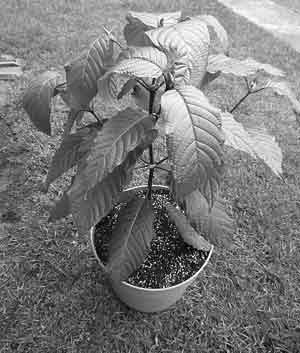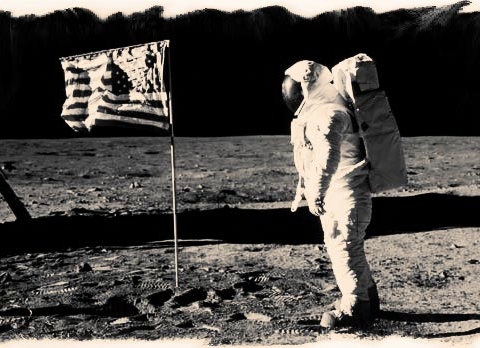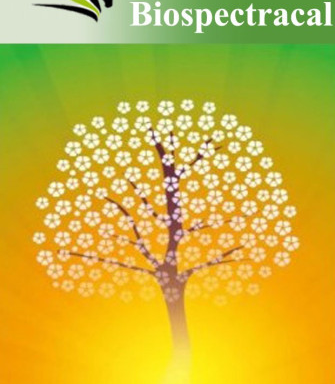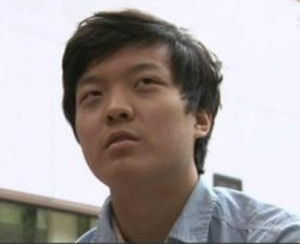
South Korean prodigy Yoo-geun Song is 17 years-old and about to complete his Ph.D. in astrophysics. The boy genius, along with his dissertation adviser Seok Jae Park, co-authored an article published last month in The Astrophysical Journal, but regrettably, the article closely matches a book chapter published in 2002. The chapter is not cited in the new article.
The recently-published article is entitled “Axisymmetric, Nonstationary Black Hole Magnetospheres: Revisited,” and it was published in October 2015 (vol. 812.1) in The Astrophysical Journal. Here’s evidence of the matching text:
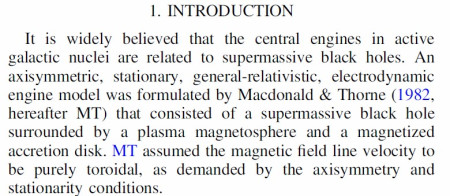

The first image above shows the recent article. The second image is copied from a book chapter entitled “Stationary versus Nonstationary Force-Free Black Hole Magnetospheres.” The chapter appears in a book called Black Hole Astrophysics 2002, published by World Scientific. The chapter’s sole author is Song’s adviser, Seok Jae Park.
Here’s additional evidence:
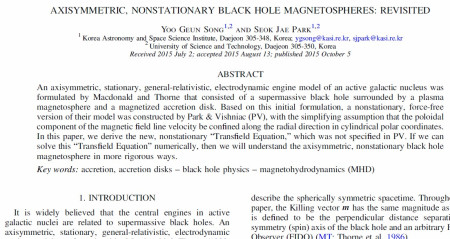
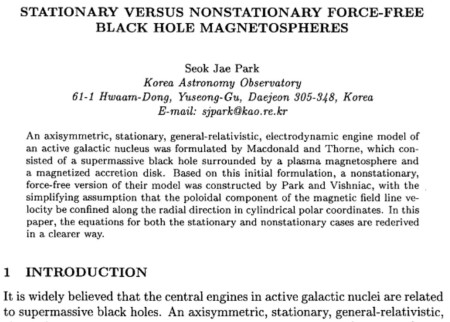
I note that the title of the article published last month has the word “Revisited” at the end. However, the article does not cite the 2002 book chapter, and the text and equations in the new article are presented as original.
The author instructions for the American Astronomical Society, publisher of The Astrophysical Journal, state, “Articles published in the journals of the American Astronomical Society (AAS) present the results of significant original research that have not been published previously.”
The new article has updated references and an additional conclusion. There are additional, minor changes, but the bulk of the text and equations in the 2015 article appear to duplicate the 2002 work.
I have emailed the AAS and requested an investigation. The journal has not yet had sufficient time to investigate the case, and I’m sure AAS will handle it properly. My concern is not with the journal but with the paper’s authors. An additional complication is that the editor of The Astrophysical Journal, Ethan Vishniac, has co-authored at least one paper with the boy’s dissertation adviser, Seok Jae Park.
Song — who according to Wikipedia started university at age eight — is set to begin work as a post-doc after he graduates with his astrophysics Ph.D. in February. Let’s hope he gets some better advising.
By: Jeffrey Beall
Follow on Twitter
Source: Scholarly Open Access


